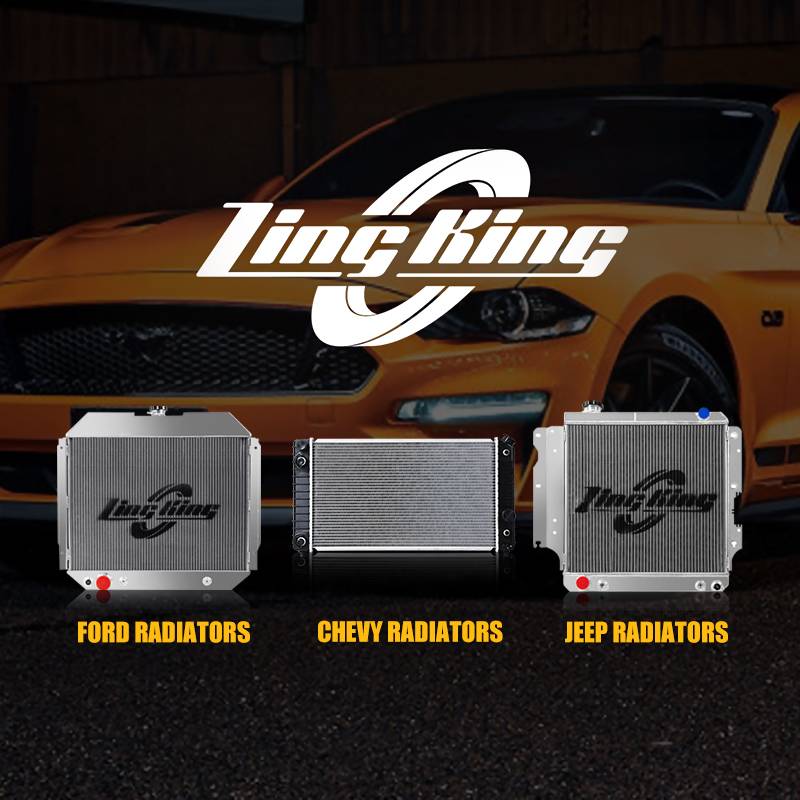
Noticias
Stay Cool This Summer: Expert Car Radiator Care to Prevent Overheating
Stay Cool This Summer: Expert Car Radiator Care to Prevent Overheating
As temperatures soar, your vehicle’s cooling system faces its toughest challenge: keeping the engine from overheating. The car radiator plays a starring role in this battle, channeling heat away from your engine to ensure reliable performance. At [Your Business Name], we’re dedicated to helping Chevrolet, Jeep, and Ford owners protect their vehicles with top-tier automotive radiators and smart maintenance practices. Here’s your go-to checklist for summer-ready car radiator care!
1. Start with a Coolant Refresh
Coolant (antifreeze) is the lifeblood of your car radiator. Over time, it degrades, losing its ability to prevent corrosion and regulate temperature. Begin summer by draining old coolant and refilling with a fresh 50/50 mix of antifreeze and distilled water. This simple step boosts your automotive radiator’s efficiency and protects against rust.
2. Pressure-Test the Radiator System
Even minor leaks can spell disaster in summer heat. Use a radiator pressure tester (available at auto stores) to check for leaks in hoses, the radiator core, and connections. A healthy car radiator should hold pressure steadily. If it drops, inspect for cracks or worn seals—especially around common problem areas like the thermostat housing.
3. Clear Debris from Radiator Fins
Dust, leaves, and bugs love to cling to your car radiator’s fins, blocking airflow and reducing cooling capacity. Use compressed air or a soft-bristle brush to gently clean the fins. For stubborn grime, a low-pressure water rinse works wonders. Pro tip: Check the radiator’s condition during oil changes for consistent upkeep.
4. Upgrade to a High-Efficiency Radiator
If you drive a Chevrolet, Jeep, or Ford in extreme heat, consider upgrading to a performance automotive radiator. Modern aluminum or copper-brass radiators offer superior heat dissipation compared to older models. At [Your Business Name], our radiators are engineered for durability and peak cooling—perfect for summer adventures.
5. Monitor the Thermostat
A stuck thermostat can trick your car radiator into underperforming. If your engine takes longer to warm up or overheats quickly, test the thermostat. Replace it if it fails to open/close properly, ensuring coolant flows smoothly through the system.
6. Inspect Radiator Hoses Annually
Cracked, swollen, or soft radiator hoses are red flags. Squeeze the upper and lower hoses—they should feel firm, not squishy. Replace any hose showing wear, and opt for reinforced silicone hoses for added heat resistance. Don’t forget to tighten hose clamps to prevent leaks!
7. Verify Fan Functionality
Your automotive radiator’s electric fan is crucial for cooling at low speeds. Start your car, turn on the AC, and let it idle. If the fan doesn’t kick in within a few minutes, check the fuse, relay, or motor. A malfunctioning fan can lead to rapid overheating in stop-and-go traffic.
8. Avoid Short Trips When Possible
Frequent short drives prevent the car radiator from reaching optimal operating temperature, leading to coolant contamination and sludge buildup. Combine errands to let your engine warm up fully, which helps burn off moisture and keeps the cooling system clean.
Don’t Let Summer Heat Win!
A well-maintained car radiator is key to avoiding breakdowns and extending your engine’s life. At [Your Business Name], we stock premium radiators tailored for Chevrolet, Jeep, and Ford models, designed to withstand even the harshest summer conditions.
Browse our collection today and equip your vehicle with a radiator built to keep its cool!
ZINGKING
Your Trusted Source for Chevrolet, Jeep & Ford Car Radiators
